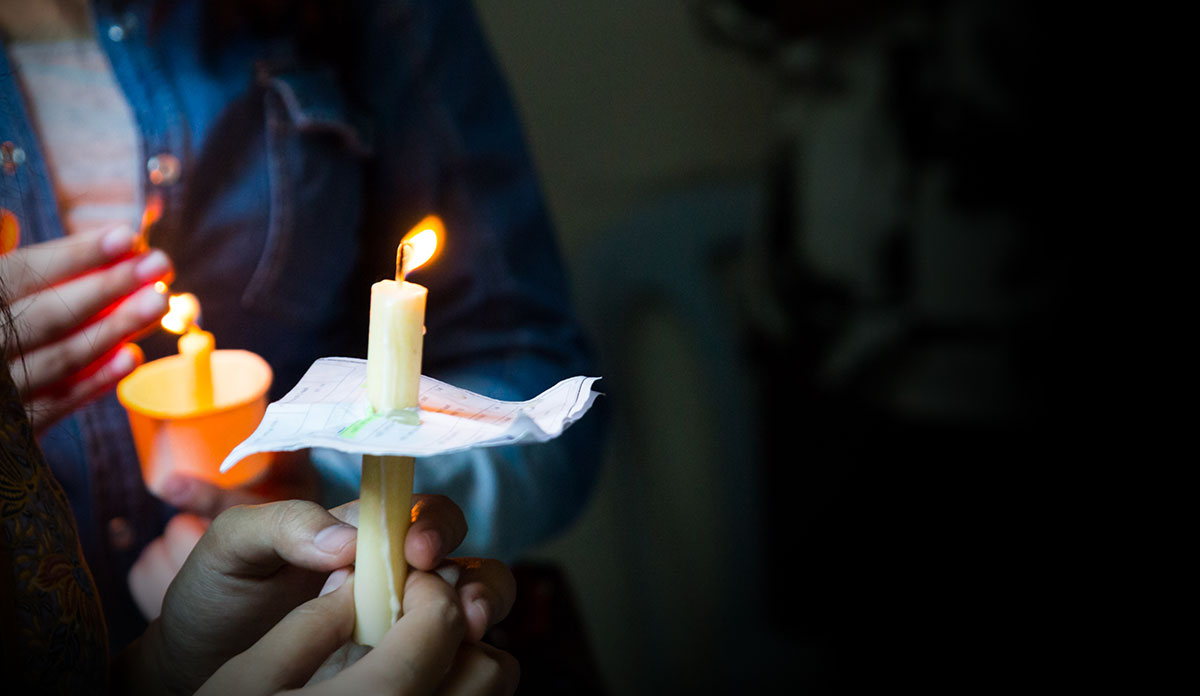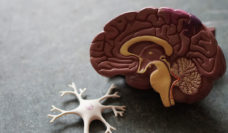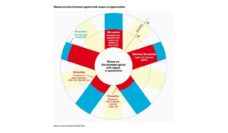The eight murders in Atlanta shook many Americans, including the staff here at Public Health Post. The killings have been a Rorschach. Everyone sees some part of themselves or someone they know among those who died and the people who loved them: the immigrant, the woman, the survivor of violence, the person who has experienced racism.
But we struggle against each person gunned down becoming a symbol. We remember they are parents, siblings, cousins, spouses, friends. We identify pieces of society in disrepair: the lack of services for the mentally ill, the lack of background firearm checks, misogyny, sexual violence, the latest on a long list of racial assaults.
The shooters on our long list are almost always men. But we are all looking for larger lessons. The killer gets psychologized. The families of the killed are devastated and traumatized. The American dream meets the American nightmare. Along with our colleagues, we feel anger, despair, shame, and fear about how easily we can be attacked. We must resist our habits of inattention and complacency.
One of our goals here at PHP is to bring many voices into the conversation about the day-to-day experiences and emotions that shape our collective and individual wellbeing. The Atlanta murders, the ongoing violence against Asian Americans, and the trial of the former police officer who killed George Floyd give us much to think and talk about.
Here, our staff, one by one, grieve the losses, identify problems we want to work on, and resume the quest for the health of all.
–Michael Stein & Jennifer Beard
Victim Blaming
Asian women, massage parlors, and a need to “eliminate temptation.” This was all the media needed to shame the victims of the Atlanta shooting as sex workers. Hypersexualized stereotypes of Asian women go back centuries. The 1875 Page Act aimed to “end the danger of immoral Chinese women” by explicitly banning the immigration of “Chinese prostitutes.” These pervasive stereotypes get combined with the fallacy that all massage parlors are sites of underground sex work. The result? Frequent and violent police raids that induce trauma among largely Asian immigrant communities. The criminalization of sex work directs resources towards perpetuating harm and fear, rather than providing safeguards and support systems. Disparaging stereotypes target Asian immigrant communities, stripping them of protections, respect, and their dignity.
–Sara Mar
America’s Parallel Epidemics
Covid-19 brought a parallel epidemic: a surge of anti-Asian hate incidents. A national report recently released by Stop AAPI Hate revealed that women reported hate incidents at a rate 2.3 times more than men, frequently including sexual harassment and gendered slurs. They also reported more physical violence than men. Society’s hypersexualization of Asian-American women engenders harassment and violence that is simultaneously sexual and racial. The Atlanta shooter’s claim that his murders were motivated by “sexual addiction,” not racial factors, tried to shift the blame to his victims, short-sightedly ignoring the long-standing racialization of misogyny against Asian-American women. Racial and gender inequality are inextricable.
–Elissa Shea
Policies That Kill
Overtly racist anti-Asian policies once dominated our country. The Chinese Exclusion Act, passed in 1882, barred Chinese immigrants from entering the United States on the basis of race. The act spurred subsequent policies that sustained this objective for the next 60 years. The Chinese Exclusion Act wasn’t repealed until 1943 when the US needed to rally soldiers to address a new adversary: Japan. Even if these policies are considered our past, the effects are present today. Xenophobic policies justify the narrative that race outweighs personhood and is sufficient grounds for discrimination. To think that small acts of kindness alone can diminish ages of racist laws is egregiously short-sighted. It will take the intentional, allied action of the masses to incite change in their governmental bodies. Only the institutions that enacted these policies hold the power to rectify their consequences.
–Rubina Veerakone
The Individual’s Fallacy
“For all the good that laws can do, we must change our hearts. Hate can have no safe harbor in America. It must stop.” President Biden’s words after 8 people were murdered in Atlanta. The words are meaningless. Politicians are happy to respond to a mass shooting by condemning the actions of the shooter. They place the horrifying parts of America on the individual, “the bad apple”, instead of taking ownership for the continuous and deliberate efforts the US government and subsequent institutions have in upholding white supremacy. Communities targeted by hate crimes experience higher rates of psychological distress and intergenerational trauma. The government’s disregard for its responsibility in hate crimes — either intentional or complacent — and reluctance to instill change is disrespectful to victims and is fueling a public health crisis. Accountability is needed. Anything less is a mirage.
–Devin O’Donnell
The Model Minority Myth Divides Us
Asian Americans and African Americans are allies in a bleak war. The model minority myth was developed during the Cold War to contrast how Asian and Black people survived racial opposition in America and to cause conflict between the groups. African Americans and Asian Americans entered this country by different means. Faced with varying levels of dehumanization, they chose disparate approaches to survive a racist society. White American media championed Asian Americans for their ethnic assimilation and political silence, while simultaneously painting Black people as inferior for their inability, or refusal, to do the same. In 1974, Frank Chin explained the phenomenon, “Whites love us because we’re not Black.” Beyond who has made the most progress in assimilation or in the fight against white supremacy, the more daring questions are who threw us into this war and how much progress can we make if we unite to end it?
–Maya Thirkill
Photo via Getty Images




















